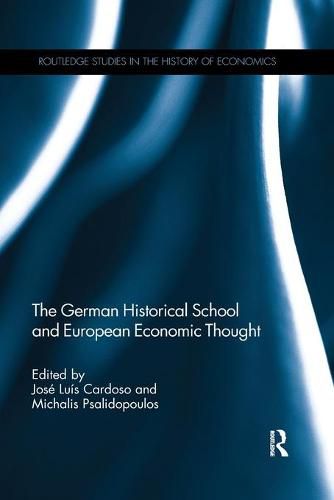Readings Newsletter
Become a Readings Member to make your shopping experience even easier.
Sign in or sign up for free!
You’re not far away from qualifying for FREE standard shipping within Australia
You’ve qualified for FREE standard shipping within Australia
The cart is loading…






The financial crisis of 2008 has revived interest in economic scholarship from a historical perspective. The most in depth studies of the relationship between economics and history can be found in the work of the so-called German Historical School (GHS). The influence of the GHS in the USA and Britain has been well documented, but far less has been written on the rest of Europe.
This volume studies the interconnection between economic thought and economic policy from the mid-nineteenth century to the interwar period. It examines how the School’s ideas spread and was interpreted in different European countries between 1850 and 1930, analysing its legacies in these countries. In doing so, the book is able to trace the interconnection between economic thought and economic policy, adding new voices to the debate on the diffusion of ideas and flow of knowledge. This book identifies issues related to topics such as nationalism and cosmopolitanism in the history of ideas and clarifies themes in policy making that are still currently debated. These include monetary policy and benefits of free trade for all parties involved in international exchanges.
This book will be of a great interest to those who study history of economic thought, economic theory and political economy.
$9.00 standard shipping within Australia
FREE standard shipping within Australia for orders over $100.00
Express & International shipping calculated at checkout
The financial crisis of 2008 has revived interest in economic scholarship from a historical perspective. The most in depth studies of the relationship between economics and history can be found in the work of the so-called German Historical School (GHS). The influence of the GHS in the USA and Britain has been well documented, but far less has been written on the rest of Europe.
This volume studies the interconnection between economic thought and economic policy from the mid-nineteenth century to the interwar period. It examines how the School’s ideas spread and was interpreted in different European countries between 1850 and 1930, analysing its legacies in these countries. In doing so, the book is able to trace the interconnection between economic thought and economic policy, adding new voices to the debate on the diffusion of ideas and flow of knowledge. This book identifies issues related to topics such as nationalism and cosmopolitanism in the history of ideas and clarifies themes in policy making that are still currently debated. These include monetary policy and benefits of free trade for all parties involved in international exchanges.
This book will be of a great interest to those who study history of economic thought, economic theory and political economy.